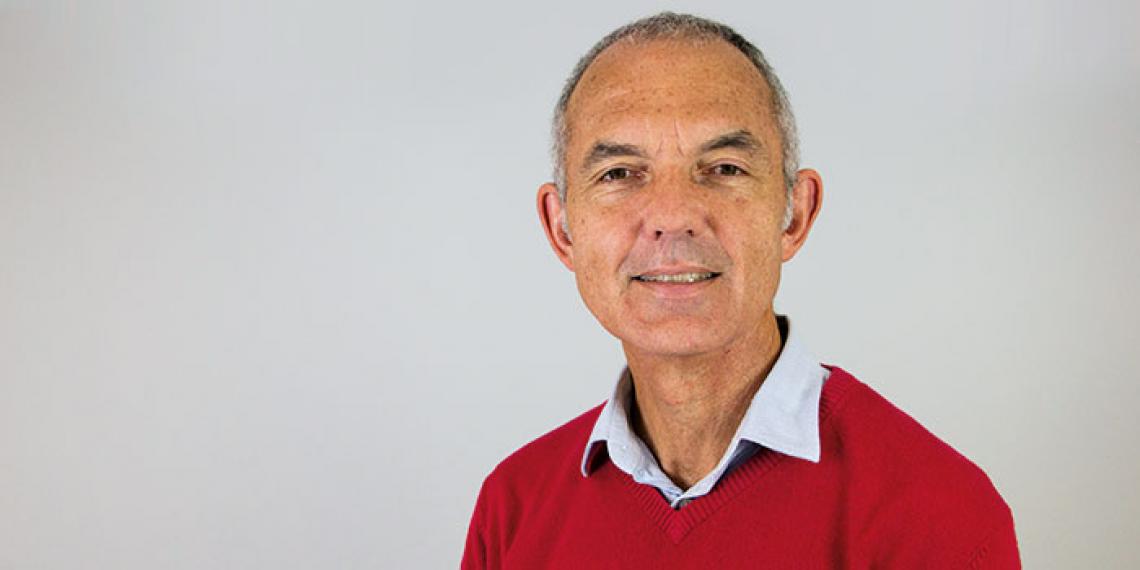You are here
An impact back home

After 26 years in international development around the world Salvation Army Social Housing (SASH) National Director Greg Foster says he’s excited to make an impact back home.
After studying in the United States, my wife Fay and I worked in development in Bangladesh, Jordan and Tanzania before moving to South Africa, and Slovakia with Habitat for Humanity.
In Bangladesh, we worked on job-creation projects focused on empowering women—you can still find products from these projects in Trade Aid stores in NZ today. In Jordan, we worked locally and in Iraq. Those were the days of the sanctions and no-fly zones in Iraq, but we managed to travel there regularly with medicine and food for those in need.
I have many Iraq stories, including from a time I was in Southern Iraq talking to farmers in a field. To get to the field we had to walk past piles of cluster bombs, and during the conversation an American plane flew over.
Unbeknown to me, some Iraqi soldiers were nearby and they started firing at the plane, which returned fire. The farmers continued to talk as if this was part of their normal life. There wasn’t anywhere to run anyway! Never a dull moment.
In Tanzania, I was involved in a large micro-finance project before managing a Ministry of Health malaria project, where we gave out vouchers to pregnant women so they could buy discounted, treated mosquito nets. That project saved thousands and thousands of lives. For every thousand nets you distributed, you saved at least three lives a year. We distributed over five million nets.
I then joined Habitat for Humanity, looking after their work in East Africa and the Middle East. Later, I headed up the Africa region, and then had Europe and Central Asia added. The region included 34 countries where we had operations.
While with Habitat, we built thousands of houses, advocated for governments to accept pro-poor housing policies, and worked with many banks and micro-finance institutions to help them develop pro-poor housing products.
Seeing the difference housing makes in people’s lives is extremely motivating. In Africa, we often worked with families impacted by HIV/AIDS. We’d be building houses for a grandmother looking after 20 grandchildren.
Seeing them living in—you couldn’t even call it a shed, just something made of plastic—and being able to build them a concrete block home, it motivates you to want to do more.
I was doing a lot of travel for that job and we have family, including a grandchild, here in New Zealand, so we decided last year it was time to come home. Soon after, a Salvation Army job came up in Wellington, which was where we wanted to be, and it was working in housing with a Christian organisation.
My job is to help look after the Army’s social housing portfolio of 322 social housing units, and grow this portfolio sustainably. We’re also exploring a huge number of partnership opportunities. Our aim in Salvation Army Social Housing is to provide housing to the growing number of individuals and families that are in need of a decent place to live.
Housing is a huge challenge here, and in my opinion is the greatest driver of inequality. It is great to be a part of an organisation that wants to do something about this.
Getting individuals and families who were living in a garage or car into housing is, I believe, helping bring God’s Kingdom amongst us. This is what The Salvation Army and our Social Housing arm is all about.
by Greg Foster (c) 'War Cry' magazine, 17 June 2017, pp11
You can read 'War Cry' at your nearest Salvation Army church or centre, or subscribe through Salvationist Resources.
Find out more about The Salvation Army’s Social Housing | www.salvationarmy.org.nz/SocialHousing